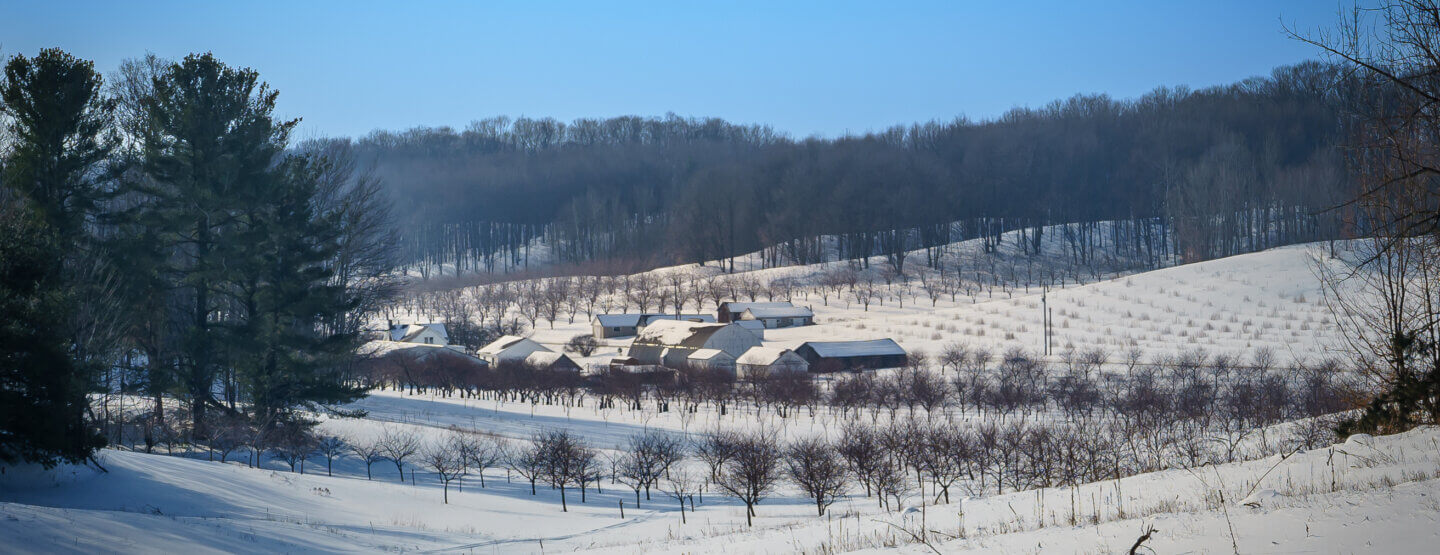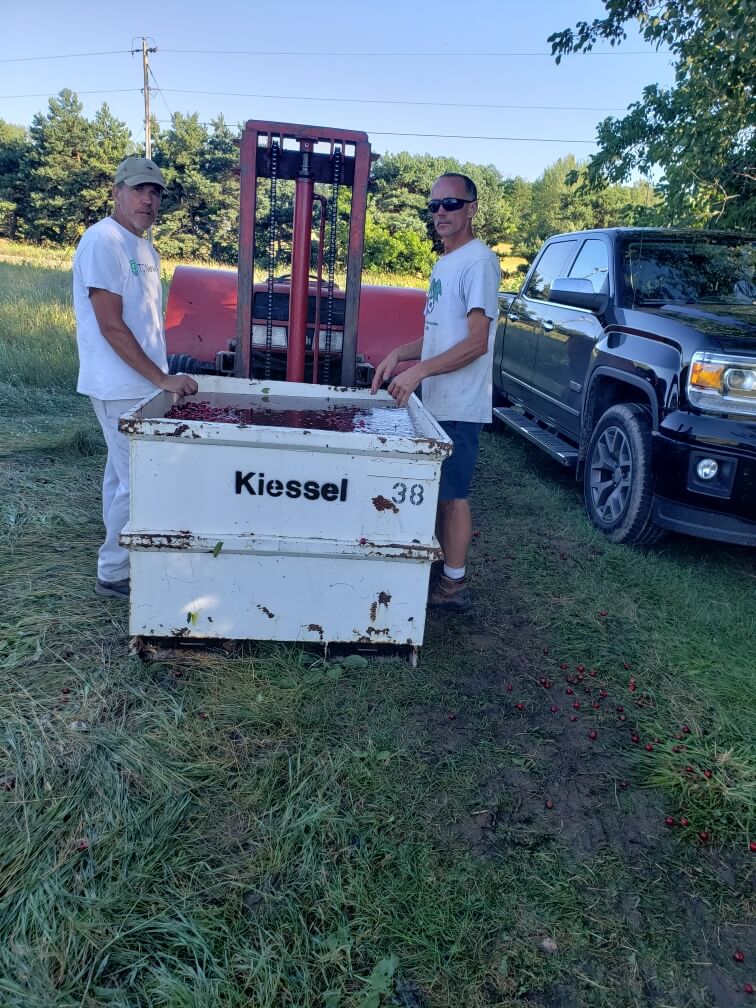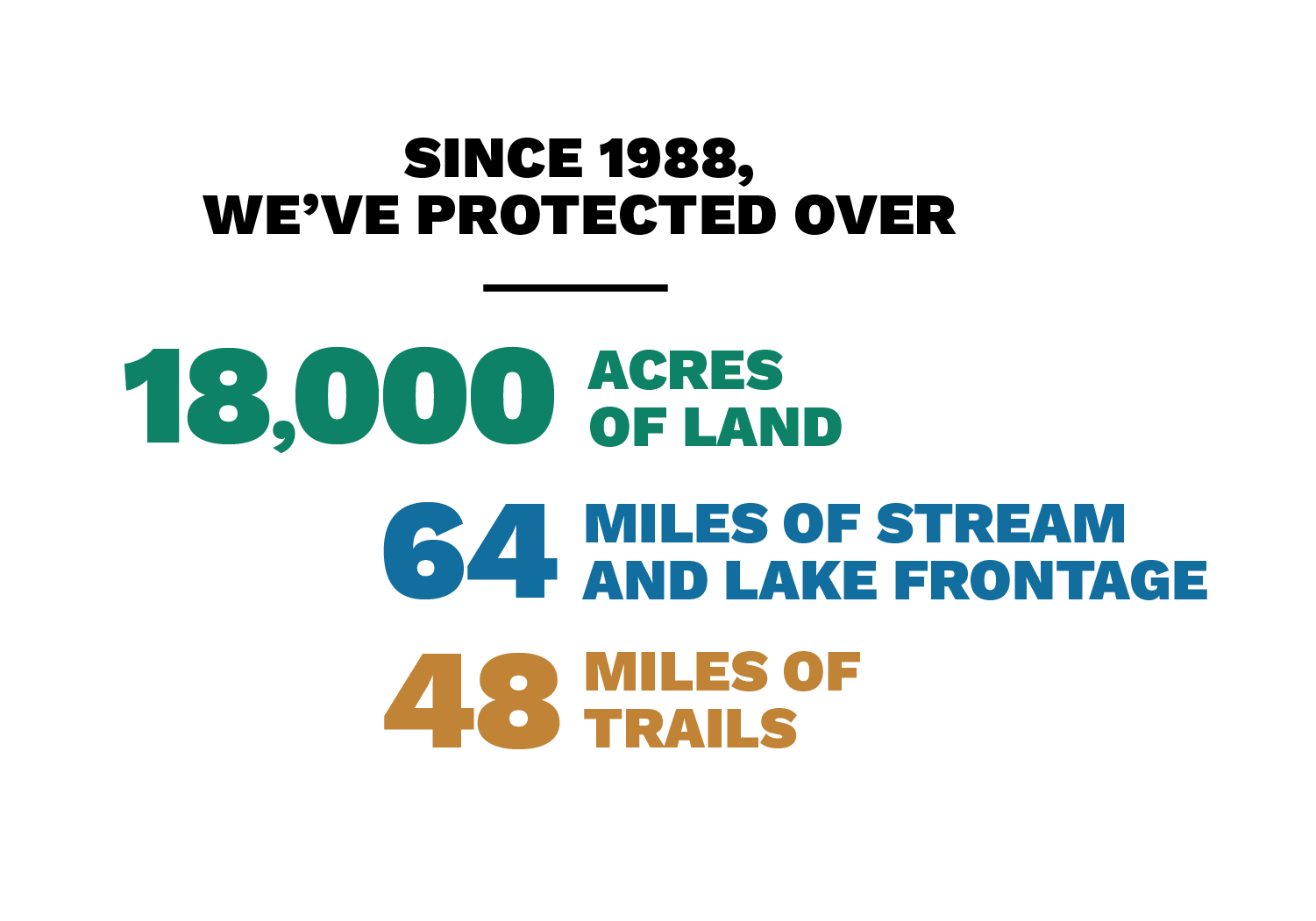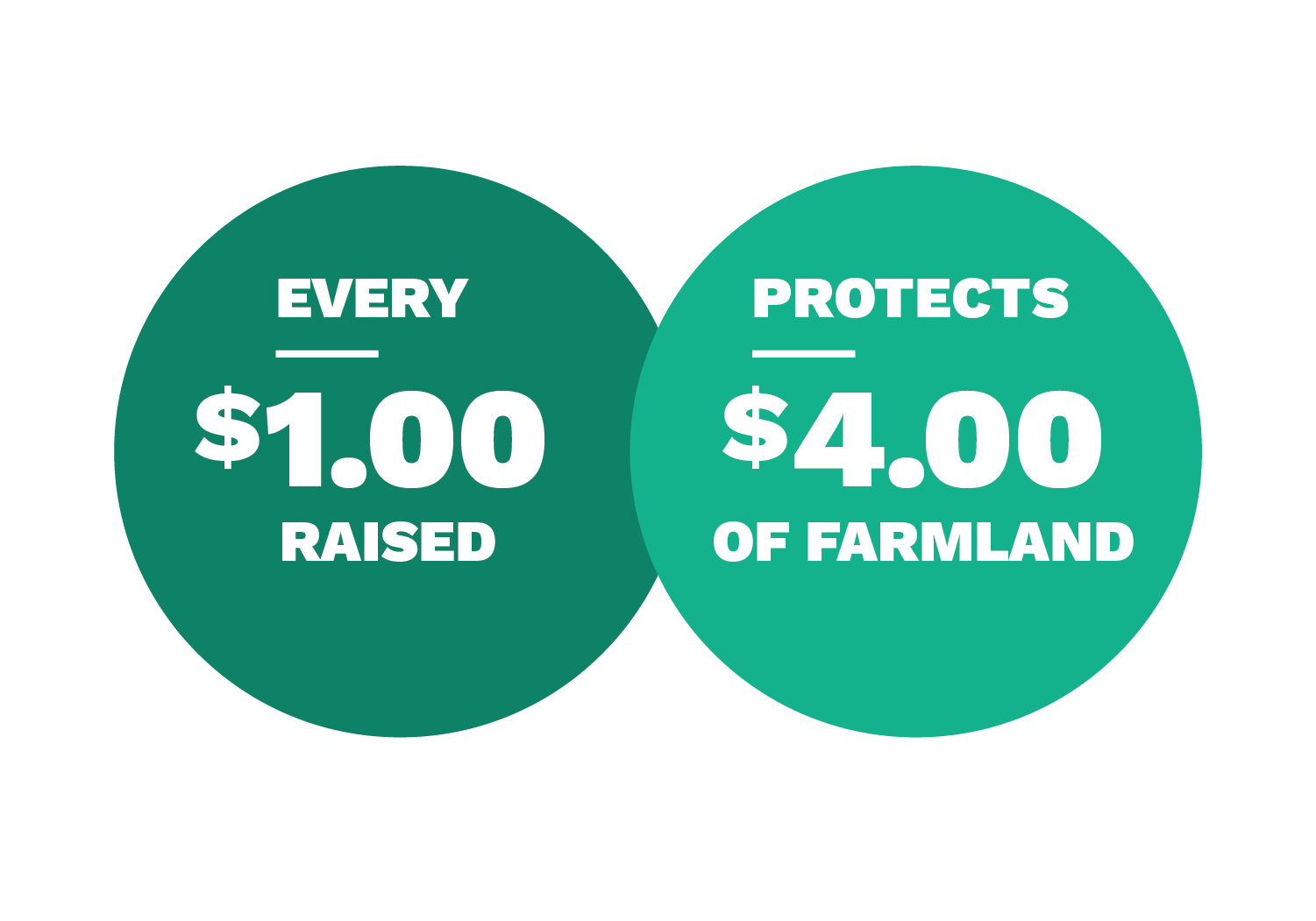Ed Kiessel looks across a large, snowy swath of land and squints his eyes. The sun’s reflection off the ice-glazed snow is near blinding, but the view is worth fighting to look at. Snow and sky touch and stretch into a crystalline desert. In the distance, rows of young cherry trees frame the land. “They’re small now. We’ve planted a couple thousand of them and will continue to plant more in this area. It’ll be nice when they’re less adorable and begin producing fruit,” he grins. The land has had a long track record of successful farming, which Ed attributes to its elevation and soil quality.
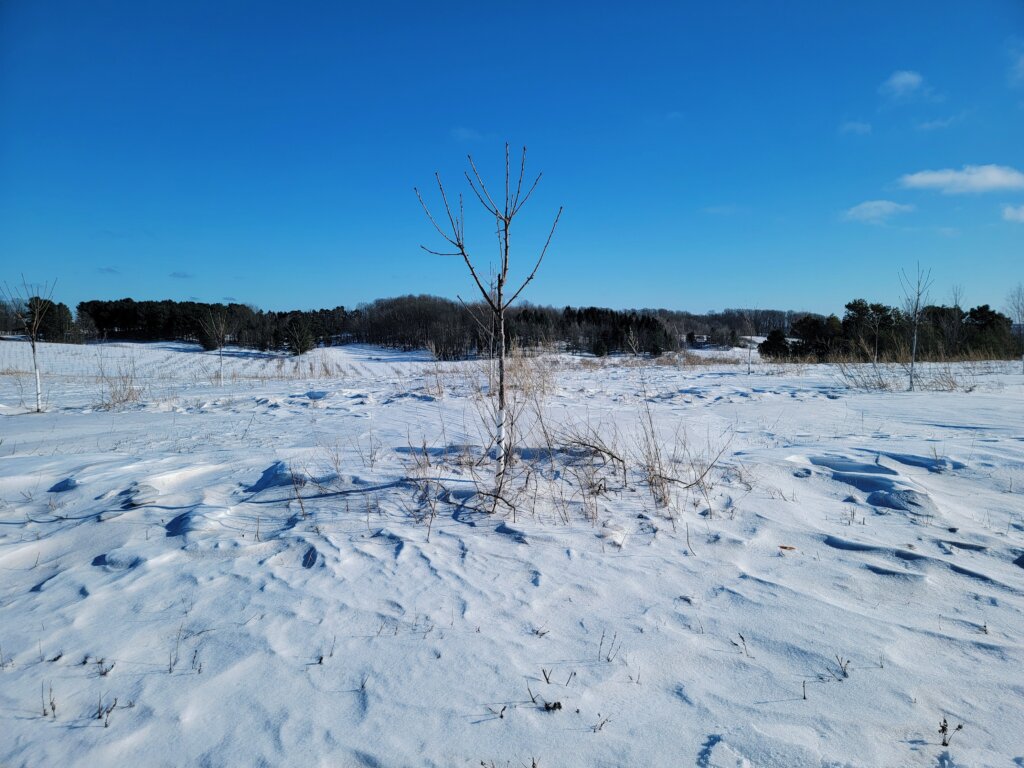
This chunk of fruitful land is only 25 acres of a larger 108-acre farm property that the Leelanau Conservancy has just protected in partnership with the Natural Resources Conservation Service (NRCS) through their Regional Conservation Partnership Program (RCPP).
Brothers Ed and Don Kiessel are the proud owners of Kiessel Orchards. The first of the farms was started in 1976 by their dad Don Sr. and uncle Bill Kiessel. The family’s Leelanau roots date back to the 1800s. “Our first ancestor here was Carl Edward Kiessel, who settled here in the mid-1860s just north of Suttons Bay. My grandpa Frank Kiessel Sr. married Rita Priest, and they had a family farm as well. It means a lot to us to have all of this deep history.”
Both Ed and Don grew up working on the family farm. Days were spent pruning and fertilizing trees, picking up brush, burning brush piles, and staying out of their mom’s hair. “Don and I are 11 months apart, we have a younger sister, and my mom was a stay-at-home mom. My dad needed the work done, and my mom needed us out of the house, so it worked out really well.”
Kiessel Farms has grown to comprise a collection of smaller farms throughout the township. Some of the land is owned and some leased. They all have one thing in common, though; they exclusively grow cherries. “Just cherries,” said Ed. “I always say smart farmers grow something else, like apples, to give a longer season for your help, more diversified income, all of that. But, it becomes about economies of scale. You’ve got to get different equipment for different trees; you need more acreage and volume to make it worthwhile.” To say it’s a labor of love would be an understatement. Like their father and uncle before them, Ed and Don work full-time jobs separate from their farming–Ed as an accountant, and Don as a lineman for Consumers Energy. They each bring their talents to the farm. Ed handles most of the business side, and Don manages the mechanical work and day to day operations. But sometimes, a situation calls for them to get back out on the farm together. “We have a crew, and last summer, the two people who run the cherry shaker were both out. Don got on the shaker side, and I got on the catch half, and we shook trees all day. You don’t forget how,” he laughs.
On a secluded road, a stretch of cherry orchard laces the edge of protected acreage. The farm borders the protected Mawby family farm as well. “It’s a detour route, a destination,” Ed said. “You’re not over here unless you live here or are on a Sunday drive. It’s really peaceful.” Over on the elevated portion of young cherry trees, one can almost get a 360 degree view of just land and trees. A collection of newly constructed homes blips the panorama. Ed, while saddened by the hardy farmland being sold off, understands the harsh realities of farming. “It’s not easy. These last three years, in particular, have been brutal. Labor is a big challenge right now. Everything we use for day-to-day operations has gone up in price.” There are also climate concerns to deal with. Over the last several seasons, late March or early April temperatures have warmed enough to cause early budding on the cherry trees. After the warm spell is gone, another frost will likely occur, and they’ll lose a portion of their crop. Frustrating as the circumstances can get, for the Kiessels, farming is a way of life. “My brother and I knew this was good farmland. The property values in the county have gone up so much. To think that you’re going to buy property and make your money back by farming … it’s almost impossible. To work with the Conservancy and bring down the cost basis by selling the development rights makes it all more feasible.”
The excellent soil, sloping beauty, and connectivity to other farms make this land highly attractive to developers. Ed’s and Don’s deep Leelanau roots could never have allowed it to be anything other than farmland. Their semi-retirement plans include spending more time getting back to those farming roots. There’s a checklist that’s never quite finished when it comes to chores. No matter what else is going on in their lives, there are always trees to prune, land to reshape, or a piece of equipment to work on. They wouldn’t have it any other way.
“The secret is you really have to love it,” Ed said. “For my dad, it wasn’t always about making money. He wanted to create something that the family could continue, which could add value to the place he lives and for younger generations. For us to protect this forever with the Conservancy is a great thing. I don’t know what the next 100 years will look like for farmers, but I do know that there will be good land left for them to farm.”

